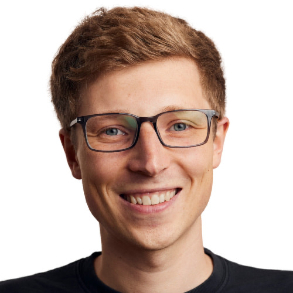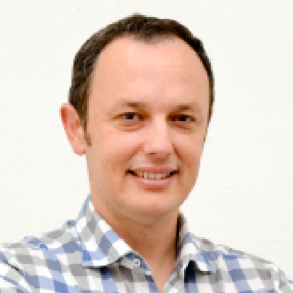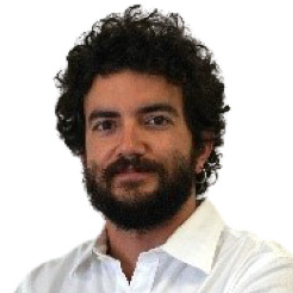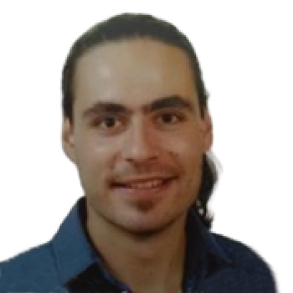Keynote Speakers
We are happy to introduce our keynote speakers: Prof. Dr. Martin Raubal, Dr. Linnet Taylor, Prof. Gilberto Câmara and Brendan O’Neill.
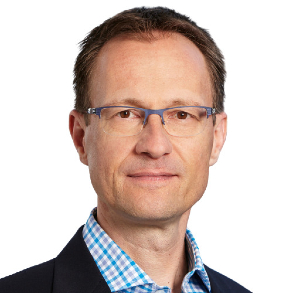
Martin Raubal is Professor of Geoinformation Engineering at the Swiss Federal Institute of Technology (ETH) Zurich. He is also a member of the Energy Science Center at ETH Zurich and a member of the Future Resilient Systems Management Committee at the Singapore-ETH Centre. He was previously Associate Professor and Vice-Chair at the Department of Geography, University of California, Santa Barbara, and Junior Professor at the University of Münster. Martin received his Dr. techn. in Geoinformation from Vienna University of Technology in 2001 with honors. He holds a M.S. in Spatial Information Science and Engineering from the University of Maine and a Dipl.-Ing. in Surveying Engineering from Vienna University of Technology.
Martin’s research interests focus on spatial decision-making for sustainability, more specifically he concentrates on mobile Geographic Information Systems (GIS) & Location Based Services (LBS), analyzing spatio-temporal aspects of human mobility, spatial cognitive engineering, and mobile eye-tracking to investigate visual attention while interacting with geoinformation and in spatial decision situations. Prominent application domains include transportation, energy, and aviation. His group’s research has been funded by various agencies and organizations, such as the EU, National Research Foundation Singapore, U.S. National Geospatial Intelligence Agency, German Research Foundation, Swiss National Science Foundation, Swiss Federal Office of Energy, Federal Office of Civil Aviation, Innosuisse, Swiss Data Science Center, or the ETH Mobility Initiative. Industry partners include Swiss Federal Railways, Esri, HERE Technologies, Swiss International Air Lines, Lufthansa Aviation Training, SERMA, Thales, Swissgrid, ewz, and elia.
Martin’s teaching includes courses on GIS, cartography, geovisualization, location-based services, temporal aspects of GIS, spatial cognition and wayfinding, and research methods. He was Co-Chair of AGILE (Association of Geographic Information Laboratories in Europe) from 2014-19 and he was a board member of UCGIS (University Consortium for Geographic Information Science) from 2008-11. He serves on the editorial boards of Transactions in GIS, Journal of Spatial Information Science, Journal of Location Based Services, Spatial Cognition and Computation, Annals of the AAG, and Geography Compass. Martin was the General Chair of the 14th International Conference on Location Based Services in 2018. In 2008 he won the U.V. Helava Award. He has authored and co-authored 200 books and research papers published in refereed journals and conference proceedings.
KEYNOTE:
“Spatial decision-making for sustainability”
Our planet is in dire straits. Several of the United Nations' Sustainable Development Goals address problems resulting from climate change and rising greenhouse gas emissions. The constant growth of urban mobility and transport has led to a dramatic increase in these emissions. In order to ensure livable environments for future generations, it will be necessary to reduce our CO2 footprint. Spatial decision-making fueled by spatial data science contributes to this effort in major ways, supported by recent progress regarding the availability of spatial big data, computational methods and geospatial technologies. This presentation will demonstrate why spatial decision-making is essential for sustainability and how spatial data science provides methods to perform large-scale spatio-temporal analyses of mobility patterns as well as geospatial technologies for changing people's mobility behavior. Examples will cover movement data analysis within the context of multi-modal and energy-efficient mobility, smart charging of electric vehicles, and mobile decision-making support.
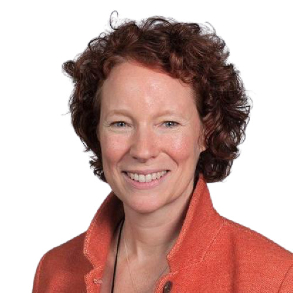
Dr. Linnet Taylor is Professor of International Data Governance at the Tilburg Institute for Law, Technology, and Society (TILT), in the Netherlands. Her research focuses on digital data, representation and democracy, with particular attention to transnational governance issues. Her work on group privacy and data justice is used in discussions of technology governance in countries around the world. She leads the ERC Global Data Justice project, which aims to develop a social-justice-informed framework for governance of data technologies on the global level. The research is based on insights from technology users, providers and civil society organisations around the world. Her work is also currently supported by the Luminate foundation and the EU AI Fund. She is a member of the Dutch Young Academy (De Jonge Akademie) and a co-chair of the NWO’s Social Science roundtable advisory group.
KEYNOTE:
“The God’s eye view? Geospatial data, power and politics”
Since the 2010s there has been a shift in the nature and quantity of digital data on social processes flowing into both research and policy. Much of this data stems from sensing and monitoring through GIS and related technologies, whether using people themselves as sensors (as with mobile phone location data) or using classic forms of sensing in new ways (such as satellite data for migration monitoring, or social media data for development policy). New forms of data such as those stemming from fintech, from ID systems around the world, and other sources promise to broaden the uses and potential abuses of people’s digital traces. The new data provides what Pentland (2012) has termed ‘the god’s eye view’ – but to whose benefit, and in whose interests? There are two views on this in the world of research. First, do the new sources provide better-quality data, do they add something to the analysis of social phenomena, can they enable policy and research to do a better job of serving society? The second view asks how these data sources become available, whose interests they serve, and what this means for their legitimacy, and the legitimacy of research and policy based on them. This presentation will explore the tensions between these two views, and ask how these new sources of geospatial data interact with questions of rights, ethics and politics.
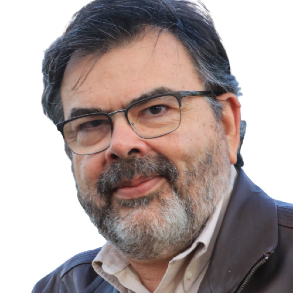
Prof. Gilberto Câmara is a researcher on Geoinformatics and Land Use Change in Brazil's National Institute for Space Research, where he was General Director (2006-2012). He is renowned for promoting free access to geospatial data and for setting up an efficient satellite monitoring of the Brazilian Amazon rainforest. He was Director of the Secretariat of the Group on Earth Observations (GEO) from July 2018 to June 2021. He is a Dr. Honoris Causa by the University of Münster (Germany), a Chevalier de la Ordre National du Mérite of France, and received the Pecora Award from USGS and NASA.
KEYNOTE:
“Satellite Image Time Series Analysis for Big Earth Observation Data”
This presentation describes sits, an open-source R package for satellite image time series analysis using machine learning. It supports the complete cycle of data analysis for land classification. Its API provides a simple but powerful set of functions. The software works in different cloud computing environments. Satellite image time series are input to machine learning classifiers, and the results are post-processed using spatial smoothing. Since machine learning methods need accurate training data, \sits includes methods for quality assessment of training samples. The software also provides methods for validation and accuracy measurement. The package thus comprises a production environment for big EO data analysis.
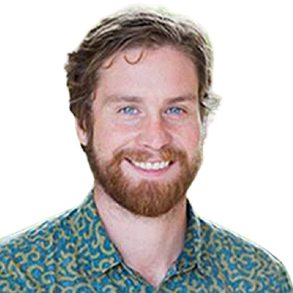
Brendan O'Neill has been a member of Esri’s Nonprofit and Global Organizations team for 5+ users and supports institutions like the World Bank, World Food Programme, the Food and Agriculture Organization, United Nations Refugee Agency (UNHCR), and USAID among others. Brendan focuses on helping develop and implement geospatial strategies at these institutions. Prior to working on the NGO team, he worked with Esri's education outreach team where he focused on modernizing GIS curricula and developed Do-It-Yourself Geo Apps, a Massive Open Online Course that has instructed over 20,000 students to date. Brendan is also an adjunct instructor at Johns Hopkins University and holds a B.A. from the University of Virginia, an M.A. from King's College, London, and an MSc. from Lund University.
KEYNOTE:
“Geographic Information Systems in the Humanitarian and Global Development Communities”
Geographic information technology has evolved rapidly in recent years but challenges in designing systems and solutions that meet the increasingly complex needs of humanitarian and development organizations persist. In this keynote he will discuss trends and challenges that face the United Nations System and international NGOs in effectively making use of the latest developments in geospatial technology. Brendan will also present solutions that despite these challenges have succeeded in positively impacting outcomes in areas such as food security, mine action, disaster response, and climate change resilience.

